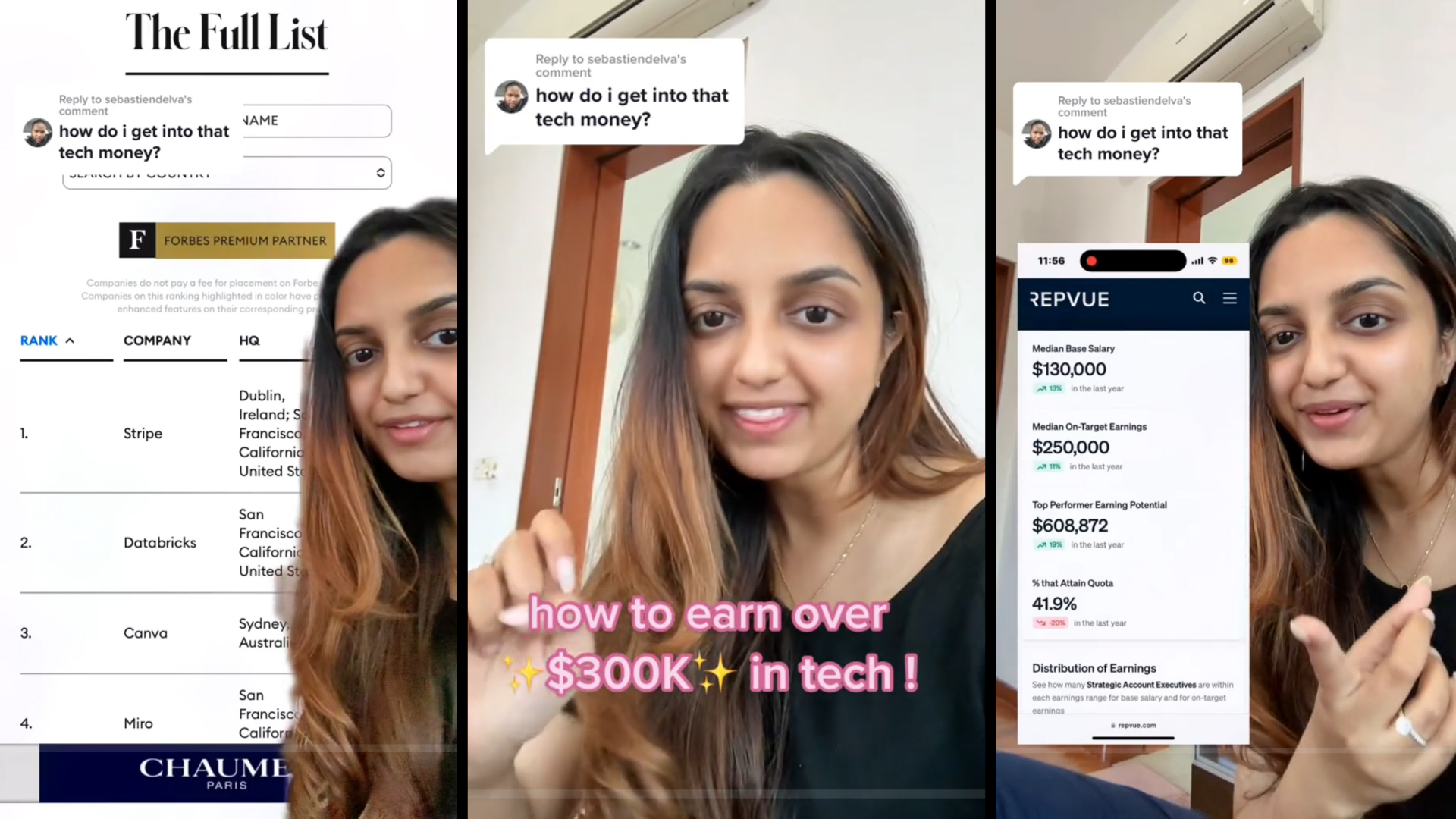SINGAPORE: A growing wave of younger professionals is changing the conversation in a world where salary discussions were once considered taboo.
Among them is Karishma Jashani, a 28-year-old tech sales expert who earns over $300,000 annually. She is vocal about her success, sharing insights into her job, daily routines, and salary on TikTok with her 25,000 followers.
@karishmairl Replying to @sebastiendelva we dont gatekeep here 😊🫶 #breakintotech #workingintech #jobsearch #techtok #techtoktips #AXERatioChallenge #learningisfun #successmotivation #careeradvice #9to5 #womenoftiktok #womenintech #womeninstem #fyp
By openly discussing her earnings, Jashani aims to empower women and break down barriers in a male-dominated field.
In The Straits Times report, Jashani confided, saying, “I want people to understand that this kind of salary is achievable, especially in tech sales,” she explains.
“It’s important for individuals to benchmark their pay against industry standards, so they can address any gaps and hold employers accountable.”
Jashani is part of a growing trend among young workers in their 20s and 30s, both men and women, who are increasingly sharing salary details with colleagues and social media followers.
Despite being less common in Singapore than in Western countries, she believes the rise of Gen Z will make salary transparency more mainstream here.
Globally, pay transparency is gaining traction, with regions like New York and Colorado implementing laws that require salary disclosure. While Singapore doesn’t mandate such transparency, younger employees are taking matters into their own hands.
Impact of salary transparency
Joy Wang, a 31-year-old growth product manager, learned a hard lesson in pay disparity when she discovered that a colleague with similar responsibilities was earning 66% more than her.
The realization spurred her to negotiate a raise and promotion. “It’s important to know where you stand. Pay transparency allows you to gauge if you’re being compensated fairly,” Wang shared with The Straits Times.
For freelance professionals like Daisy Mitchell, transparency has become a way to combat industry-wide challenges.
The 26-year-old British-born content creator regularly shares her earnings breakdown on TikTok, revealing a monthly income of $6,426.07 from various projects, including theatre work, TikTok consulting, and teaching.
Mitchell sees salary openness as key to addressing pay inequality, particularly the racial wage gap.
She pointed out that in her experience, clients often paid her significantly more than her co-performers simply because of racial preferences. “Racial biases in commercial work are very blatant in Singapore,” she added.
A double-edged sword
While salary transparency can help identify pay disparities and drive fairness, it isn’t without its challenges.
Joel Toh, general manager of The Supreme HR Advisory, warns that discussing salary packages can lead to discontent. “In some cases, new employees may earn more than existing staff, causing frustration, especially during economic downturns,” he said.
Dr Shereen Fatimah, assistant professor at Singapore Management University, agrees that transparency can create perceptions of inequality, potentially leading to resentment and disengagement among employees.
She suggests that when negotiating salaries, employees should consider additional non-monetary benefits, like career development opportunities or parking perks, to sustain long-term satisfaction.
Despite the potential risks, the trend toward pay transparency is undeniable.
Ms Eugenia Ng, director at Michael Page Singapore, noted a dramatic rise in job listings, including salary bands, from 50% in 2022 to 90% today.
Listings with salary information attract significantly more attention from job seekers, demonstrating a growing demand for openness in compensation.
The future of pay transparency
As younger professionals increasingly prioritize fairness and clarity, employers are forced to rethink their hiring and retention strategies. The shift is also being driven by the expectations of Gen Z workers, who seek alignment between their pay and career progression.
Wang, now running a bridal e-commerce business, advocates for using industry data and personal performance when negotiating salaries.
“Don’t base your request solely on someone else’s pay. Instead, highlight your own value,” she advises.
For Mitchell, sharing her earnings is about much more than finances. “We talk about our mental health, our relationships, and our daily lives—why not share our financial experiences too?” she says.
As the movement for pay transparency continues to grow, it’s clear that open salary discussions are reshaping the modern workforce, driving fairness and accountability for both employers and employees alike.

